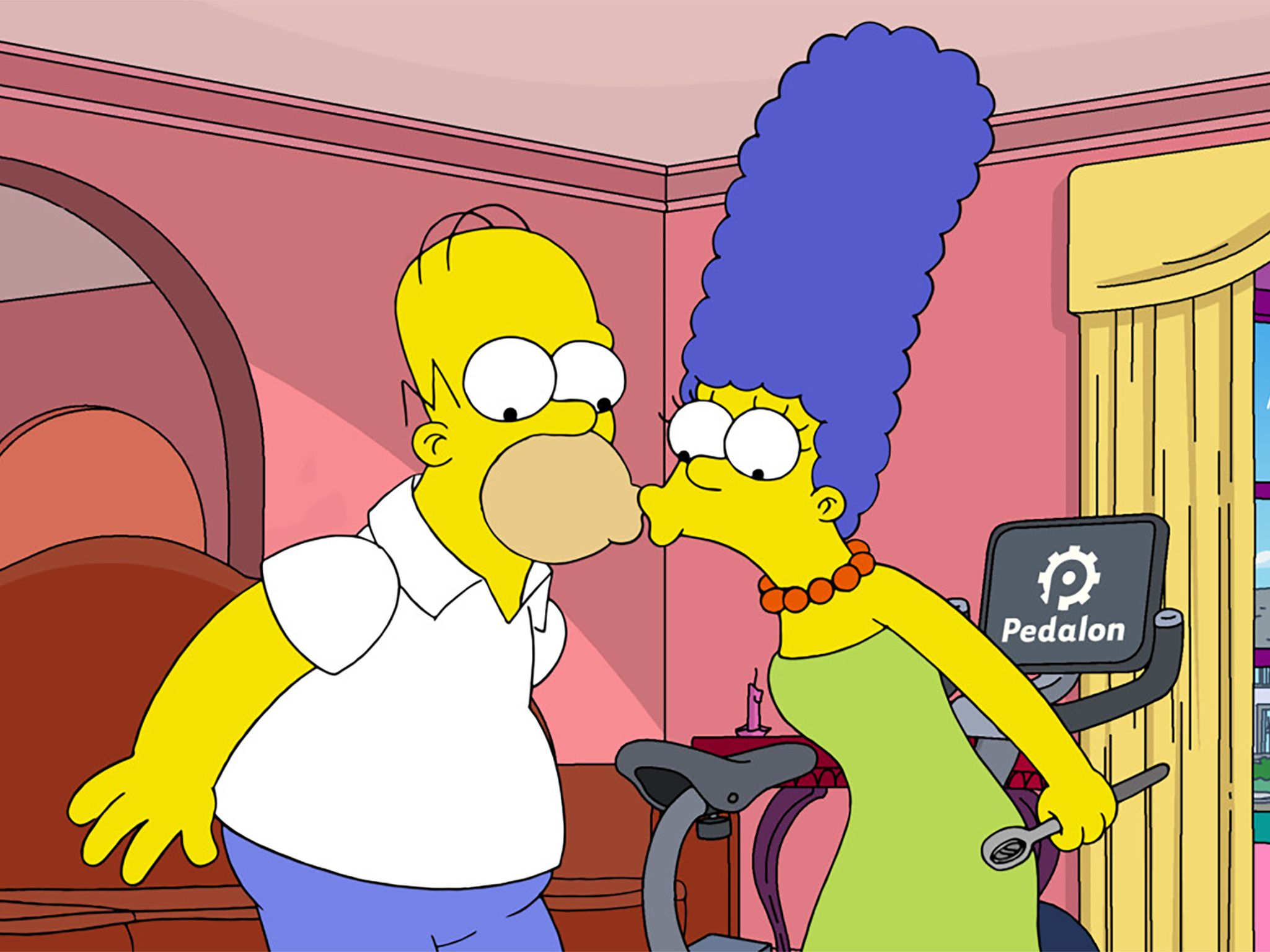The Simpsons should never be cancelled – its excellent new season is proof
The 33-year-old animation has long been accused of being past its prime, but Kevin E G Perry finds its sharp and self-aware new season provides plenty of reasons to keep it on the air until civilisation collapses into the ocean


Your support helps us to tell the story
From reproductive rights to climate change to Big Tech, The Independent is on the ground when the story is developing. Whether it's investigating the financials of Elon Musk's pro-Trump PAC or producing our latest documentary, 'The A Word', which shines a light on the American women fighting for reproductive rights, we know how important it is to parse out the facts from the messaging.
At such a critical moment in US history, we need reporters on the ground. Your donation allows us to keep sending journalists to speak to both sides of the story.
The Independent is trusted by Americans across the entire political spectrum. And unlike many other quality news outlets, we choose not to lock Americans out of our reporting and analysis with paywalls. We believe quality journalism should be available to everyone, paid for by those who can afford it.
Your support makes all the difference.The final segment of last weekend’s The Simpsons episode “Treehouse of Horror XXXIII” starts off looking very familiar. It’s a scene from “Marge vs the Monorail”, the 1993 episode written by Conan O’Brien that’s regularly voted among the show’s finest half-hours. Homer is proudly showing his family around the cockpit of the monorail, yet just as he’s about to deliver his famous line about the family of possums living in it – “I call the big one Bitey” – a couple of drunken bros appears and chant the catchphrase in unison. After the pair force beer down his neck, Homer learns he’s not really Homer at all: He’s a high-tech robot host of the sort that populates Westworld. We’re in “SimpsonsWorld”, a theme-park attraction jampacked with fan-favourite references from Kamp Krusty to Hank Scorpio with his flamethrower. When Homer is taken off to be repaired, he learns the sinister truth about his reality. “Calm down Mr Simpson,” a technician urges. “I know it feels like you’re a man but you’re actually something much, much more expensive… intellectual property.”
It’s funny because it’s true. The Simpsons has long contended with critics who argue the show is so far past its Nineties heyday it should be put out of its misery. But in reality it’s still way too big to cancel. The animated series, now in its 34th season, is both the longest-running scripted primetime show on American television and one of the most heavily and lucratively merchandised. In 2019, it was considered the crowning jewel that convinced Disney to shell out $71b for Fox’s entertainment business. If the show were ever taken off the air, its value as globally recognisable IP would surely make it only a matter of time before it was rebooted and resurrected. Just look at Futurama, another Matt Groening creation, which Hulu announced it would be reviving for an eighth season earlier this year. Like one of those hosts in Westworld, you can kill it but it will never really die.
Admittedly, longevity is no guarantee of quality. Even die-hard Simpsons fans like myself have to admit there have been moments during the last couple of decades where cancellation seemed like a merciful option. Personally, the fever-dream appearance of a live-action Katy Perry in a 2010 Christmas episode stands out as a particularly dismal chapter, but your nadirs may vary. Thankfully, though, The Simpsons lived to see another day. Those of us who’ve stuck with it are now being rewarded with a genuinely hilarious and razor-sharp season that’s among the best things on television.
Partly that’s to do with the fact The Simpsons is self-aware enough to fully embrace its place in the pop culture landscape. In the third episode of this season, “Lisa the Boy Scout”, a pair of hackers in Homer-meets-Guy-Fawkes masks ostensibly crash the transmission to broadcast a series of “show-ruining” clips that trample all over the series’ continuity. These include the revelation that school nerd Martin Prince is in fact an undercover police officer in his 30s pulling a 21 Jump Street-styleoperation, and that Lenny only exists in Carl’s imagination. The episode is deliriously funny, and made all the better for the way it thumbs its nose at the sort of online killjoys who expect every episode to adhere to strict rules of coherence and plausibility.
That’s not to say The Simpsons has to rely on meta gimmicks because it’s run out of straightforward plotlines. We’re now 20 years on from the South Park episode “Simpsons Already Did It”, yet impressively the show still manages to come up with fresh ways in which to torment and examine its sprawling cast of characters. In the recent episode “The King of Nice”, Krusty the Clown ditches his regular TV slot to become an Ellen-style daytime talk show host. It’s a sharp, well-executed satire that also gives the show a chance to poke fun at itself. When Lisa turns to Bart to ask if he’s upset, she finds her brother popping in his headphones while pulling up classic seasons of The Krusty the Clown Show on his iPad. “I’ve got my favourite Krusty episodes right here,” he says. “More than 700 of them. Kind of makes you think, once you have enough episodes of any classic show, why do you need to keep making more?”
Well, Bart, because the show still has something to say, and because we could all use a few more laughs in these desperately unfunny times. “We all know that the world is spiraling into ultracraziness,” Simpsons writer and producer Matt Selman recently told Vulture. “And I think the world is a little better off being able to hold up the Springfield mirror to that.” In a fractured and atomised society, The Simpsons is a shared language. It should go on forever — or at least until the world ends, in circumstances the show will no doubt have already obliquely predicted.



Join our commenting forum
Join thought-provoking conversations, follow other Independent readers and see their replies
Comments